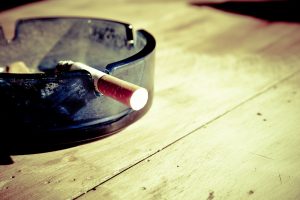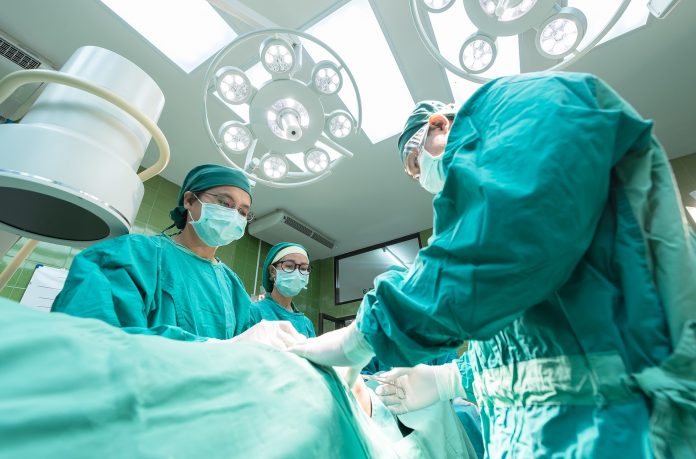The time will come when you will hurt yourself. Everything from training too hard for a big race to needing surgery or simply slipping down some stairs injuries are all part of human existence. Given the fast pace of our lives, very few people want to or are even able to, sit on the side-lines to wait to get better, especially if an injury is actively preventing them from doing something they really want to do.
One of the most common ways athletes are injured for instance is when they start training again too soon after their injury, once they feel better, but before they are fully healed. Doing this can bring injuries back, or sometimes extend recovery times indefinitely.
The good news is that while you are injured, be it from a broken arm, a stitched up wound, or a torn muscle from lifting weights there are things you can do to not only speed up healing but ensure that the injury heals as well as possible.
Eat the right meals

Most of what goes into rebuilding tissue comes from protein. Following an injury of any kind, you should increase the levels of protein in your diet. Adding eggs or chicken to your meals is a great way to get the added protein without adding too many extra kilojoules.
But eating well does not end there. Studies have shown that Vitamin C and Zinc are also essential when it comes to proper wound healing and both are easy to come by. Vitamin C is commonly found in citric fruits while Zinc can be found in good quantities in nuts, eggs and shellfish.
Fish and eggs will also be important in your diet due to their high levels of Vitamin B12 and Iron, which both help your bone marrow to form new blood cells.
You are eating an increased amount of protein so be sure to also get enough fibre and probiotics into your diet to keep your immune system up and your digestive tract working.
Despite the common misconception in SA that it’s a good idea to take sports drinks or Lucozade to a friend’s hospital bed, these should be avoided. The extra sodium in the drinks can cause the body to retain water making it harder to decrease swelling. The refined sugars can also lead to a sense of fatigue when it wears off.
Get plenty of sleep

The journal of applied physiology published a study in January 2018, which showed that sleep deprivation can lead to a decreased speed of wound healing, while getting enough sleep can actually speed it up.
Researchers found that those in the study who had sleeping restrictions also had higher levels of pro-inflammatory cytokines. Additionally, the team found that just two hours less sleep a night could delay healing time by as much as an entire day for a minor blister and significantly longer for worse injuries when compared to those who slept for the longer duration.
Keep moving

After an operation doctors like to get their patients up and on their feet as soon as possible. This helps prevent further complications like clotting or pneumonia.
With smaller injuries, even those caused by exercise, researchers now recommend that you try to get in some light cardiovascular exercises throughout the healing process, provided it does not impact at all on your injury. Studies have shown that the increased blood flow to the wound can help speed the healing process.
While every injury is different and needs to be treated as such, in some cases light movement of an injured muscle or joint may actually help prevent scar tissue from building up as well as result in a decreased loss of muscle mass. This together with a decreased loss of range of motion, and lower instances of psychological problems caused by sudden immobility can lead to an earlier return to normal life.
Stay hydrated

Drinking plenty of water definitely helps with injury recovery. Apart from restoring liquids lost due to blood loss or fever, it will also prevent dry skin, headaches, muscle cramps and low blood pressure.
More importantly, water is the way that oxygen and nutrients are delivered directly to the wound bed, and dehydration is one of the most common reasons why cell function becomes disrupted, slowing down healing. Furthermore, if an injury doesn’t maintain proper moisture, epithelial cells that work to migrate over repaired tissue will not be able to cover the wound at a normal pace, leaving it more susceptible to open air and infection.
Quit smoking

Smoking is often slammed for the damage it does to the throat and lungs, but one of the lesser-known side-effects is the fact that it also slows down injury healing.
Nicotine is a vasoconstrictor that reduces nutritional blood flow to the skin, resulting in tissue ischemia and impaired healing of injured tissue. Slower healing has been observed clinically in smokers with wounds resulting from trauma, disease, or surgical procedures.
To make matters worse smoking has actually been shown to increase the effects of pain. The American Orthopedic Foot & Ankle Society noted following one study that cigarette-related chemicals have been shown to negatively impact the way body understands “pain signals.” Smoking can also aggravate inflammation, which can boost pain and add to the difficulties of the healing process.


